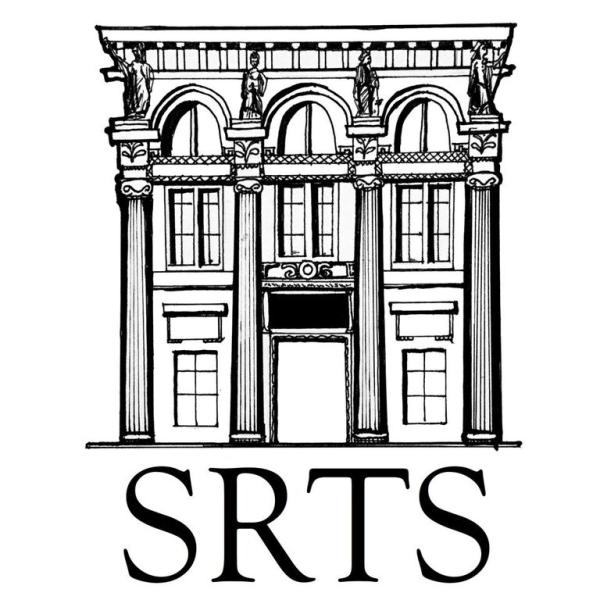
In September 2018, the annual SRTS conference took place in the friendly grounds of Somerville College. A former women’s college, Somerville has a proud history of championing equal opportunities for all, and it was thus a fitting environment for one of the Modern Languages Faculty’s flagship outreach events of the year. Somerville’s own Head of House, Janet Royall, Baronness Royall of Blaisdon, who is herself a modern linguist, kindly gave the after-dinner address, where she spoke of the value of languages in the current political climate and the need to nurture Modern Foreign Languages in schools. Ninety-four teachers attended the conference this year: fifty-two from the state sector, thirty-nine from the independent sector, and three retired members. We were pleased to be joined by delegates from all over the UK, including regions quite far from Oxford, such as Scotland, Northern Ireland, Wales, Cornwall, Cumbria, and Newcastle – to name a few! They were joined by around twenty members of the Faculty representing a range of languages. We also had the pleasure of welcoming two representatives from the University of Cardiff, as well as other academics and outreach officers from across the Humanities Division. All in all, it made for a lively and varied event which brought together a community of like-minded, dedicated linguists.
The programme this year offered a mix of academic content related to the A Level syllabus, taster lectures, and admissions sessions. We opened with a roundtable on ‘Creative Approaches to Translation’, which looked particularly at German, French, and Portuguese. Dr Charlotte Ryland, Prof. Toby Garfitt, and Dr Simon Park shared three different approaches to translation, between them covering the notion of translation as a form of creative play, the idea of mapping translation, and the potential for translation as an outreach activity. As Director of the Stephen Spender Trust, which runs an annual poetry translation competition, and one of the founders of the new Translation Outreach Centre at The Queen’s College, Dr Ryland was also able to share her experience of these schemes and how they might be expanded or adapted to new school contexts.
Following the roundtable, we were treated to a brilliant lecture by Dr María del Pilar Blanco on ‘Teaching Spanish with Images of the Past: Encounters with a fin-de-siècle Archive’. Dr Blanco’s talk was a fascinating dive into the archives of early-twentieth-century Latin American modernist magazines, and touched on a number of topics, from dictatorships to representations of the aristocracy, from images of the body to the Porfirian regime in Mexico. With our minds stimulated, we headed to Somerville’s charming dining hall for a convivial dinner, which was followed by an equally pleasing trip to the college bar. In this, the sixtieth anniversary of the SRTS, we were pleased to be joined by our longstanding supporter, David Willetts, and offer him our thanks for his unwavering generosity in providing bursaries for state school delegates to attend. We would also like to thank Maria Willetts, who was not able to join us on this occasion, but whose support is equally cherished.
Despite the late night, we were up bright and early on the Saturday morning for a literary circus on ‘Narrative Openings’. Taking a number of the texts on the A Level syllabi, academics from the sub-faculties of French, German, Spanish, Russian, and Italian spoke about the ways in which close readings of the opening passage of a literary text can offer insight into the novels as a whole. They pointed to techniques for literary analysis that can be applied beyond the passage in question.
After a break, we moved to the ‘Building Bridges’ panel, a session which was introduced to SRTS in 2016 and has since become a much-valued regular forum for discussion about the issues facing MFL. We were privileged to hear from Prof. Claire Gorrara and Lucy Jenkins, from the University of Cardiff and Routes Cymru, who spoke about their resoundingly successful MFL student mentoring programme in schools. Two teachers then took the floor: Irena Hubble-Brezowski from Bridgwater and Taunton College spoke about two large MFL events she has run for schools in Somerset, and Jennifer Hopper from Sir William Borlase’s Grammar School spoke about the new government scheme to promote MFL through hub schools, which has just launched. As ever, we are grateful for the perceptive and generous spirit with which all the delegates approached the ‘Building Bridges’ panel, which is so useful to the Faculty in giving us an insight into the latest developments in MFL in schools.
We finished the programme with a session on admissions. Prof. Julie Curtis, Director of Outreach, gave an overview of the Oxford admissions process, which was followed by a mock interview with a current French and Russian student at Oxford, and finally by a Q&A. We finished with lunch and an optional extra workshop in ‘Multilingual Performance Techniques’ at the Taylor Institution. This additional workshop, which was attended by around fifteen teachers, was part of the Creative Multilingualism Programme’s ‘Multilingual Performance Project’, which aims to encourage teachers to use languages in performance contexts as a way to prompt linguistic creativity: this could be as simple as introducing some drama exercises to the classroom as a way to practise vocabulary, or as complex as a full-scale school play in a different language. Teachers took part in the workshop with enthusiasm and flair, with many offering suggestions as to how the activities could be adapted to language learning.
Overall, we packed a lot into twenty-four hours but the conference proved an enjoyable and dynamic event, which provided a forum for many voices to come together and discuss the very thing about which we are all passionate – our commitment to teaching and learning languages. We look forward to the next one!
